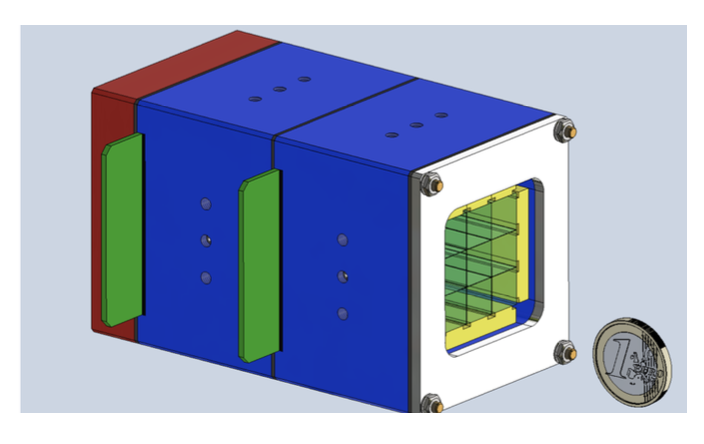Calorimeters
Calorimeters
Overview of Calorimeter System (CLIC design)
ECAL
- Barrel: 40 layers of Tungsten absorber (1.9 mm) + Silicon Pad sensor; cell size: 5x5 mm2; r_min = 1500 mm; r_max = 1702 mm; half_length = 2210 mm; symmetry = dodecahedron
- Endcap: 40 layers of Tungsten absorber (1.9 mm) + Silicon Pad sensor; cell size: 5x5 mm2; r_max = 1700 mm; z_min = 2307; z_max = 2509; symmetry = dodecahedron
HCAL
- Barrel: 60 layers of Steel absorber (19 mm) + plastic scintillating tiles; cell size: 30x30 mm2; r_min = 1740 mm; r_max = 3330 mm; half_length = 2210 mm; symmetry = dodecahedron
- Endcap: 60 layers of Steel absorber (19 mm) + plastic scintillating tiles; cell size: 30x30 mm2; r_max = 3246 mm; z_min = 2539; z_max = 4129; symmetry = dodecahedron
Occupancy of beam-induced background at 1.5 TeV
Average occupancies per bunch crossing, obtained with a minimal energy threshold of 0.2 MeV without timing cuts:
- ECAL Barrel: 0.9 hits/cm2 at the surface
- ECAL Endcap: 0.2 hits/cm2 at the surface
- HCAL Barrel: 0.06 hits/cm2 at the surface
- HCAL Endcap: 0.02 hits/cm2 at the surface
Average occupancies as a function of the depth:
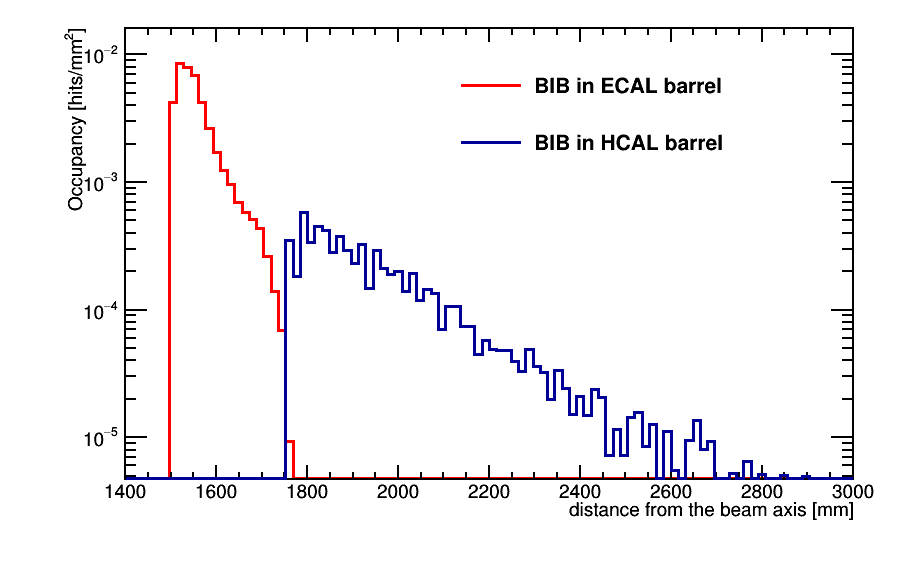
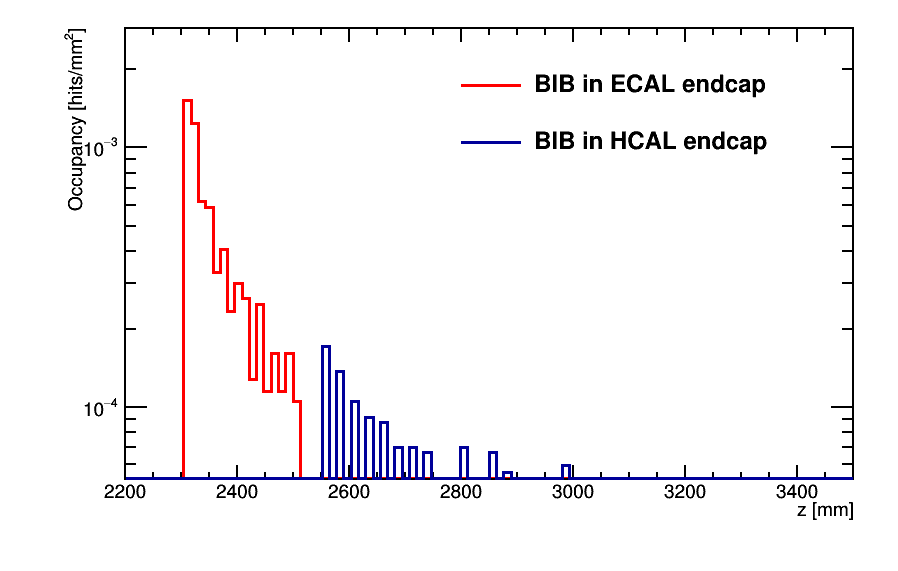
Recommended acquisition timing window to remove most of the beam-induced background: -250 ps, +250 ps with respect to the time of arrival of a photon from the bunch crossing.
Jet reconstruction performance
Jet reconstruction is performed starting from the calorimeter system according to the following strategy:

Preliminary jet reconstruction performance on b-jets in the presence of the beam-induced background at 1.5 TeV, with a not-fully-optimized algorithm configuration:
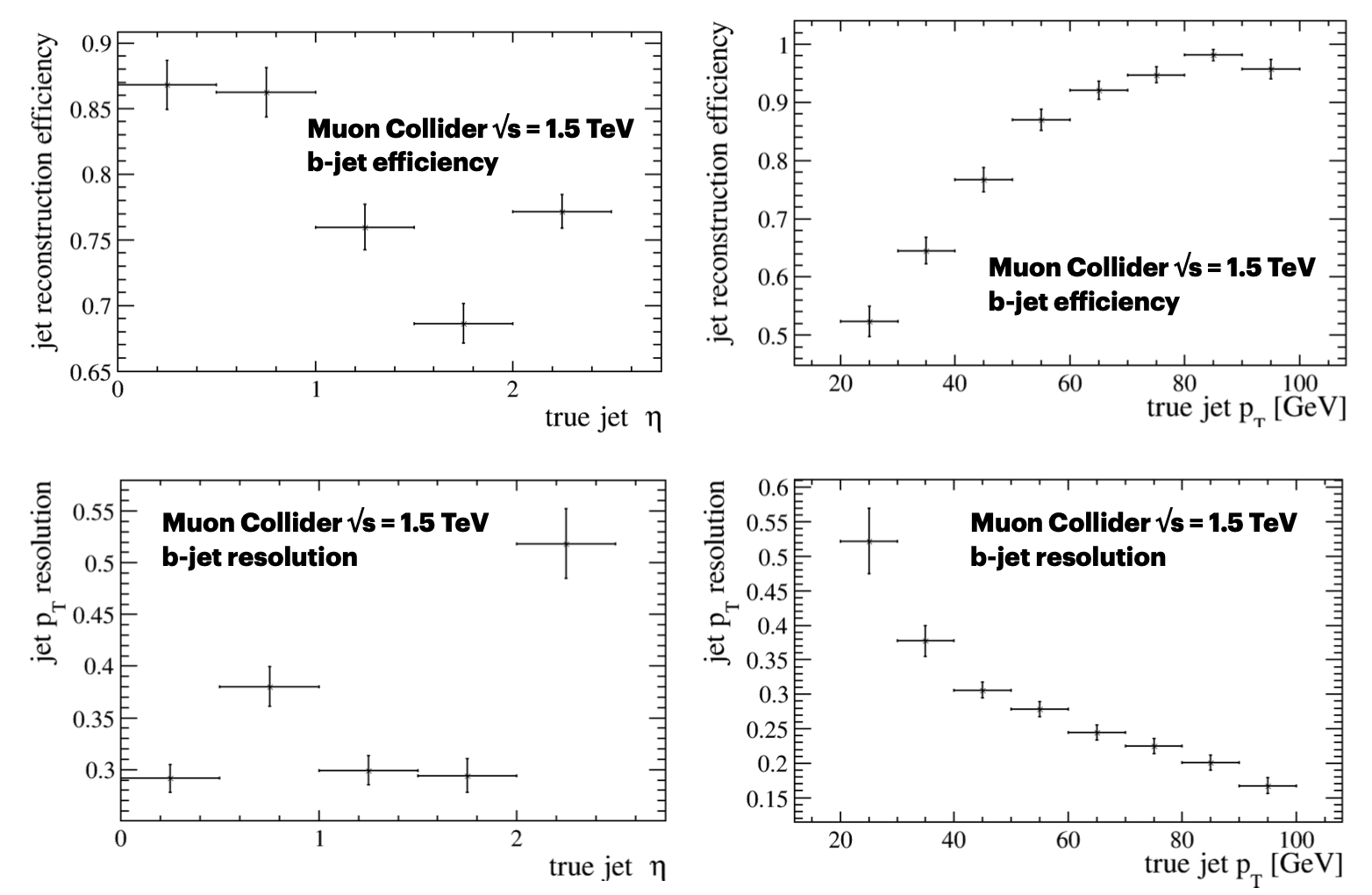
Alternative ECAL barrel design (Crilin)
The following ECAL barrel design optimized for muon collider (Crilin) is currently under testing in simulation:
- Barrel: 5 layers of PbF2 absorber (35 mm) + SiPM; cell size: 10x10 mm2; r_min = 1500 mm; r_max = 1702 mm; half_length = 2210 mm; symmetry = dodecahedron
Geant4 realization of Crilin:
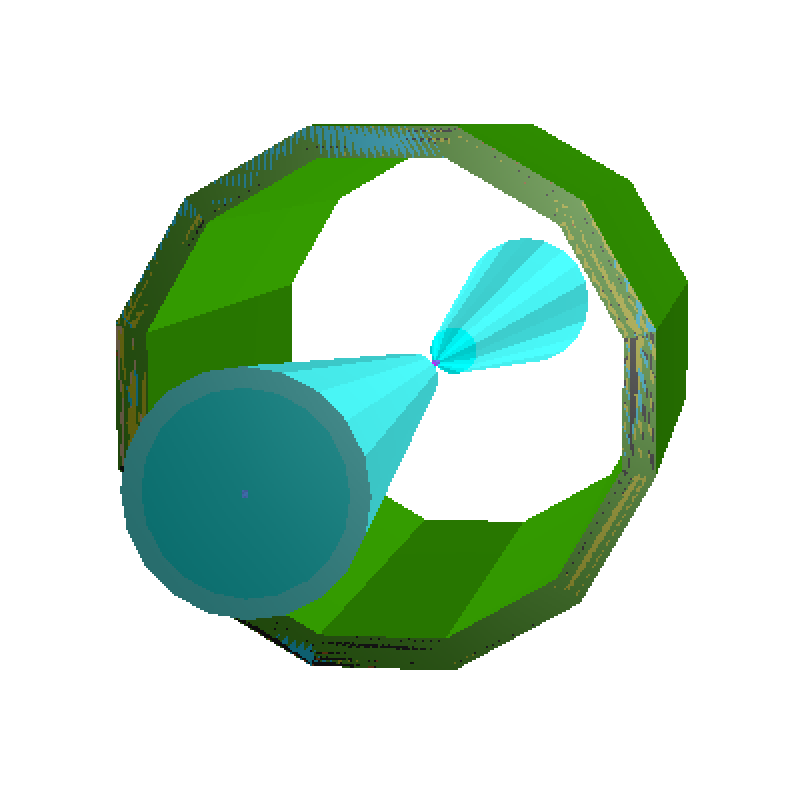
Design of Crilin cell prototype currently tested at Laboratori Nazionali di Frascati:
